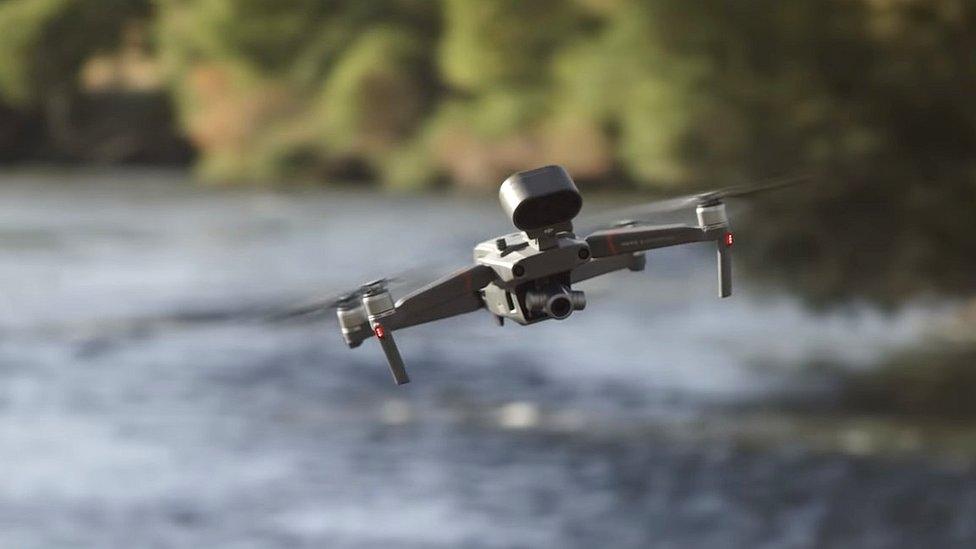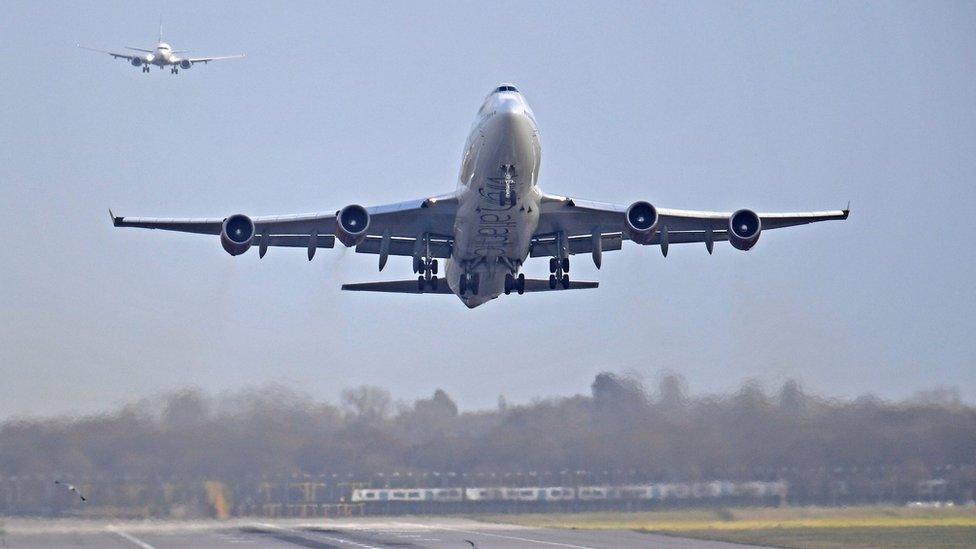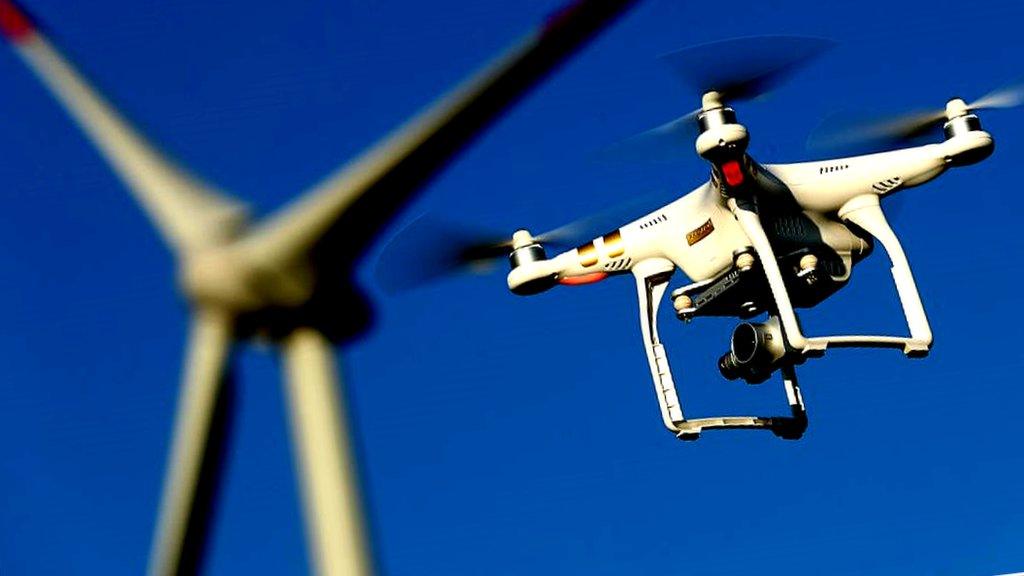DJI challenges BBC on drone danger reports
- Published

DJI said it would file a formal complaint about the BBC reports
Drone maker DJI has lodged a complaint against the BBC over the way the flying gadgets were portrayed in TV reports.
In an open letter, it expressed "deep disappointment", external with the way drones were depicted in the videos.
The reports were based on "hearsay", claimed DJI, which felt they fell short of the BBC's public remit to "inform, educate and entertain".
The BBC said its investigation had shown positive uses of drones and that its programmes were fair.
Disturbing report
In its letter, DJI spelled out its objections to two separate BBC reports. One was a Panorama report broadcast in April that dealt with the shutdown at Gatwick believed to have been caused by a drone.
The other was a Horizon report called "Britain's Next Air Disaster? Drones" that was shown on 1 July.
DJI said it provided video footage and advice to production teams for both the reports, but said the BBC used little of this material.
Instead of featuring this information which showed how drones can be used safely, it claimed the BBC focused on "sensational, high-risk scenarios" that were unlikely to come about.
DJI detailed a range of measures that are now in use that help to make drone use safer. These included:
geo-fencing
automatic sensing of aircraft
remote identification systems
collision sensors
The end result, alleged DJI, were reports that could not be "construed as balanced or impartial in anyone's book".

Air traffic at Gatwick Airport was disrupted for two days by a suspected drone
The tech firm had specific complaints about details of each report. In particular, it said, the way that Horizon tested collisions between drones and aircraft was "disturbing" because it did not reflect the "real world".
"Having these reports published in trusted media creates a scenario of misinformation potentially more dangerous than fake news about the drone industry," wrote DJI.
The BBC responded: "In the wake of the crisis at Gatwick Airport last year - and the strong public interest in this - we believe our Horizon investigation into the technology behind drones, and whether the related UK safety measures are adequate, was justified, fair and impartial."
It added: "From the outset, and repeatedly during the film, the positive uses of drones and the efforts the industry has taken to make them safe was referred to.
"The film does not claim that drone technology is unsafe, but rather that it can be used maliciously when in the wrong hands. Indeed, as drone users ourselves, the BBC is well aware of the positive benefits of them when used appropriately."
In a separate statement, Panorama said its programme "raised important questions about why Gatwick airport was closed down for so long after the alleged sightings of a drone or drones, disrupting thousands of passengers, and why almost six months after the event the police had still not identified a suspect."
Its statement added: "The film did not claim drones were unsafe, but did suggest that they can be disruptive or a risk if used maliciously."
DJI said the letter was published in advance of it filing a formal complaint with the broadcaster, which a spokesman said would happen on Friday.
- Published15 May 2019

- Published23 May 2019

- Published21 May 2019
